Sales Venues
In this guide
- Community Farmers Markets
- Festivals & Fairs
- Cafes & Restaurants
- Internet-based & Online Sales
Products need to move, and this is particularly important for food products with a limited shelf life. An ideal sales venue is a space where customers can easily access and purchase a product. Selecting the right location depends on the budget, goals, resources, needs, and regulatory status of a food business. This guide suggests a few different types of sales venues for a new farmers’ market business and presents the benefits and disadvantages of each type of sales venue.
Community farmers’ markets are spaces where local food producers and consumers gather to buy and sell food. These markets are an ideal location to start or test a new food business because they are usually low-cost, low-commitment, and low-risk sales venues. A community farmers’ market is one of the few places that allow the sales of cottage food alongside retail and wholesale food entrepreneurs, and this makes a farmers’ market a great place to test a cottage food product or business prior to investing in state permits and licensing for retail sales or wholesaling.
Most farmers’ markets charge only a small fee to participate and do not require contracts or long-term financial obligations. While it is important to show up on a regular basis, market managers are usually forgiving if a vendor needs to miss a market for any reason. Many community markets throughout Florida attract customers because they are festive events where like-minded members of the community congregate. This makes it a great place to engage potential customers and build a clientele.
Advantages |
Disadvantages |
| Low cost ranging from $5-$35/day | Labor intensive: requires transportation of products, set-up & take-down at each event |
| Welcoming cottage, retail & wholesale | Subject to inclement weather, rain, cold |
| Festive: music, entertainment, social interaction | Requires parking to accommodate a concentration of visitors in a short time |
| Low-commitment: most do not require lease or financial obligations | Demands mobility |
| Flexible hours: usually not a penalty for missing a market | Limited hours |
| Built-in marketing: take advantage of existing customer base | Subject to management decision-making |
| Cooperation & community: opportunity to meet, learn from & make friends with more experienced vendors |
There are some challenges and possible disadvantages to community markets. Selling at a farmer’s market can be fast-paced and somewhat chaotic, and this type of sales requires the ability to operate several consecutive hours of possibly stressful and hectic vending. Setting up and taking down for each market event can be labor intensive and a challenge for people with physical impairments, especially depending on the proximity of vendor parking and unloading to your individual market space. Limited hours limits time for potential sales.
Farmers’ markets usually take place outdoors, and this makes them susceptible to inclement weather such as rain, cold, and heat. Farmers’ markets need to host a lot of people in a short amount of time, and this requires significant parking availability. Farmers’ markets taking place outdoors may not provide access for customers who need accommodations. Activities in a farmers market (and many of the factors described above) usually depend on the decision-making of management, which may or may not be agreeable with the vendors.
Each community farmers’ market is different because they not only reflect the area’s unique charm and locally produced specialties, but each market also has a different set of rules, fees, conditions, management styles, consumer activity, and physical accommodations. This makes it important to visit, investigate, and compare several farmers’ markets before making a commitment to invest time and money at the venue. Visit the Florida Farmers’ Markets guide to learn more about Florida farmers’ markets and locate a nearby market.
Festivals and fairs are similar to farmers’ markets, yet they can last several hours and even several days which makes them a very profitable opportunity. Festivals and fairs share a lot of the same advantages and disadvantages as a farmers’ market; they can include cottage food items, be festive and entertaining, and foster community and cooperation among vendors. However, they are also very labor-intensive by demanding long hours, extensive equipment set up and take-down, and are susceptible to inclement weather.
Some festivals are inexpensive while others demand a costly booth fee several months in advance. Since festivals and fairs often require vendors to prepare large volumes of products to sustain sales throughout the duration of an extended event, poor sales can be a costly hit to a new food business. This makes it very important to thoroughly investigate a festival prior to paying a fee and committing to participate.
Festivals & Fairs
|
Vendors must obtain additional state permits to wholesale products to retailers. (For more information visit the Cottage, Retail, Wholesale guide.) Food items must be able to maintain adequate shelf life, and requirements for appropriate packaging and labeling might result in additional costs (For more information, visit the Packaging & Labeling guide.) Local food retailers are often selective about the products they resell, and a retailer should be treated the same way as a potential customer.
Wholesaling to local food retailers is a great way to increase sales and expand the customer base of a new food business. Compared to farmers’ markets and festivals, retail stores can offer extended hours, greater access and flexibility to a more mixed population of customers, cross-promotion with other food items and products, and the indoor environment is less vulnerable to inclement weather.
A good event experience can be an extremely lucrative opportunity, especially for a new food business. However, it can also be an intensely laborious and unprofitable experience if the festival is poorly attended, has too many food vendors, or is populated with a clientele that is not a good fit for a local food business. If possible, it is always a good idea to attend the event first, explore the food scene, talk to the existing vendors, and then inquire about opportunities and requirements to vend at the next scheduled event.
It is important to do some research and analyze the retail situation before partnering with another business. Visit the store as a customer and investigate:
How are the products being sold in this retail space:
Return as a wholesaler and prepare to pitch the product:
Maintain the account with the retailer with regular visits:
Similar to farmers’ markets and festivals, each retailer will have a different set of rules, management styles, consumer activity, and physical accommodations. This makes it important to visit, investigate, and compare several retailers to find the right fit.
Similar to a retail store, dining operations are a great way to increase sales and expand the customer base. A growing number of cafes and restaurants are responding to increasing consumer demand for local food by including local ingredients on the menu, and some sell local ingredients made by outside vendors in a separate retail section of their establishment.
Advantages |
Disadvantages |
| Business name on menus is free promotion | Must maintain a steady supply |
| Provides an outlet for scratch and dent products not suitable for retail | Must be able to provide frequent and last-minute deliveries |
| Larger sales volume | Competition with national restaurant suppliers offering items labeled as “local” |
| Consistent sales | Products subject to employee mishandling or poor preparation |
Local suppliers have a competitive advantage over national restaurant suppliers because the business name and location are locally recognized and local suppliers can fulfill emergency orders. Establishing an account with a restaurant requires many of the same steps mentioned in the local retailer section above:Restaurants are a great outlet for steady and large sales volumes and for “scratch and dent” food items that may not be suitable for direct-to-consumer retail. A huge benefit of these partnerships with cafes and restaurants is the promotional exposure of the business name included on the menu or stocked in their retail section. Potential challenges include a demand for consistent supply, frequent deliveries, and last-minute ordering, and mishandling or poor preparation by a restaurant employee can impact the product brand. In addition, a growing number of national restaurant suppliers are now offering ‘local’ products at costs that make it difficult for local suppliers to compete.
1. Visit the restaurant as a customer to investigate
2. Return as a seller and speak with the main decision-maker
3. Visit regularly to check on the product and educate new staff
Internet-based/online sales (also known as e-commerce), is the fastest-growing market for large and small food businesses today.
The worldwide web creates the opportunity to reach customers across vast distances and different time zones. Internet-based sales are more accessible for sellers and customers with physical impairments, and internet shopping is convenient for busy customers or sellers looking to increase pre-orders. However, internet-based sales require some computer literacy, credit card transactions are subject to fraud, and shipping costs and materials can be expensive. Importantly, cottage foods cannot be sold over the internet. Sales and delivery of cottage foods must be directly from the producer to the consumer, in a person-to-person transaction, and not delivered by mail.
A wide range of ‘do-it-yourself’ software programs offer quick, easy, and inexpensive platforms to build an online store, and many platforms include credit card sales as well as inventory record-keeping. Several inexpensive online credit card services make online and mobile credit card transactions easy with direct deposit into a personal or business bank account.
There are a wide variety of sales venues for new farmers’ market business in Florida, and selecting the right location depends on the budget, goals, resources, needs, and regulatory status of a food business. This guide addressed a few different types of sales venues for new food entrepreneurs and covered the benefits and disadvantages of each. The checklist below provides a quick and easy means to document information while visiting a potential venue. For a printable PDF checklist, click here. For more information on topics and issues related to sales venues, visit the Business Plan, Regulatory Agencies, and Business Permits guides on this website.
| 1. Rules & Guidelines |
|
| 2. Venue Management |
|
| 3. Foot Traffic & Parking |
|
| 4. Fees & Hours |
|
| 5. Trial Period |
|
| 6. Craft to Food Ratio |
|
| 8. Accessibility |
|
| 9. Advertising & Marketing |
|
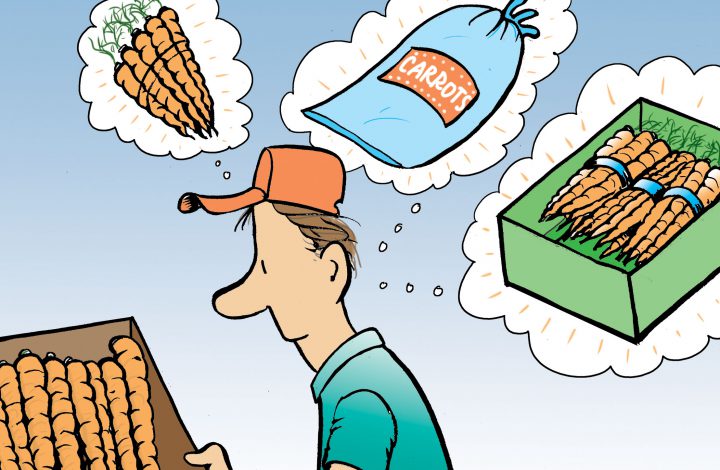
Deciding how to sell your product helps determine the need for extra permits and regulations
Start here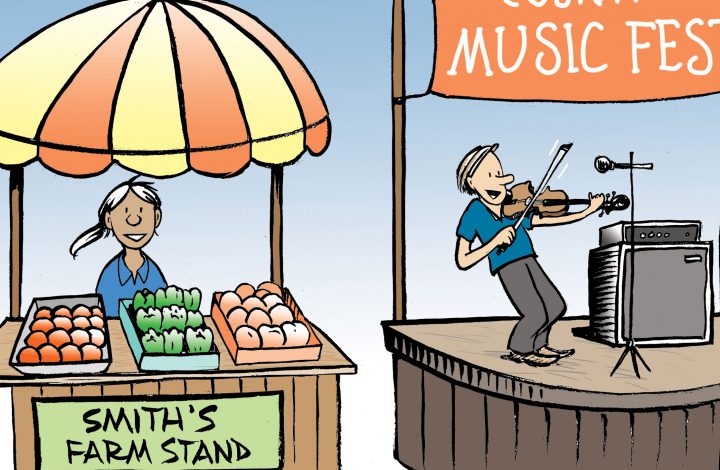
A sales venue refers to the location where products are sold. The right venue plays a key role in the success of a new farmers' market business
Start here
A business plan, or prospectus, is a planning framework used to design a new food business or develop an existing food business
Start here
A financial plan is key to a farmers' market business as it identifies and describes the current financial status of a business and as a prediction of the future financial performance
Start here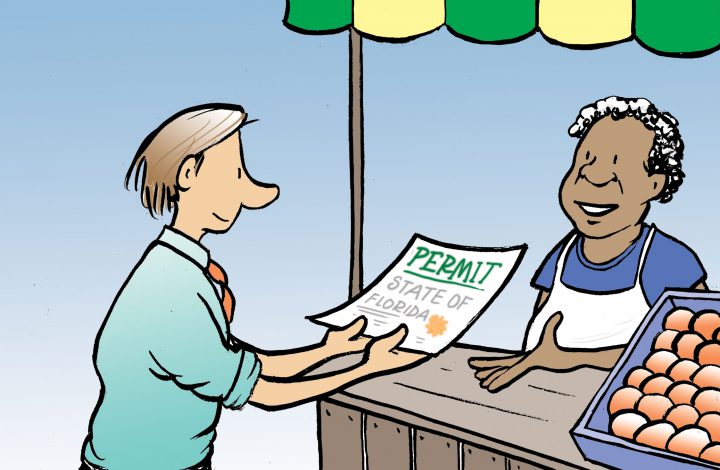
Starting a farmers' market business requires meeting some business registration and licensing obligations in order to legally operate in the State of Florida
Start here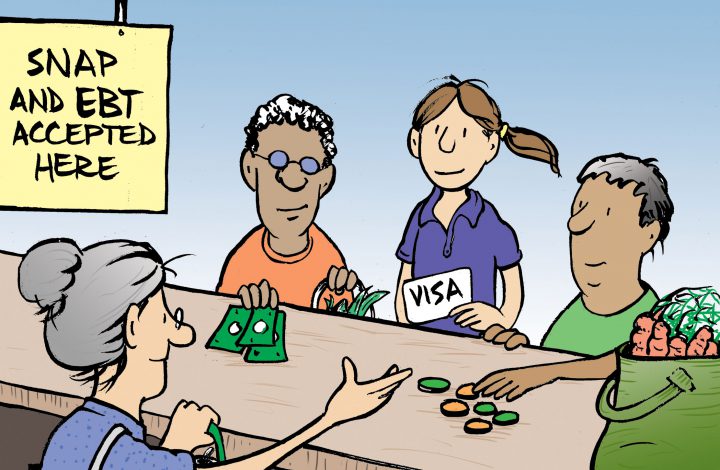
The point of sale is the time and location where a transaction occurs. The goal for every business is to increase the number of transactions and the total amount of each sale
Start here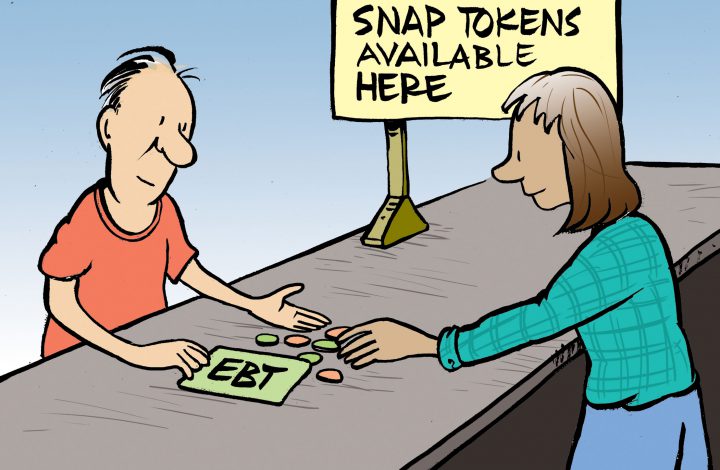
A farmers' market has real value when it includes all members of the community, and accepting public benefits allows every farmers' market business to be accessible for everyone
Start here